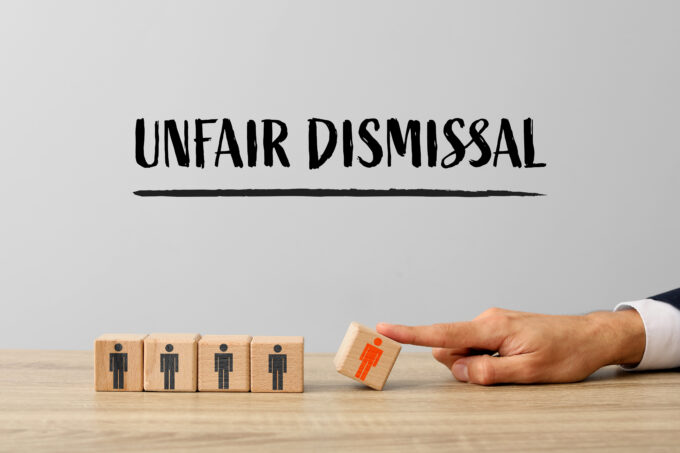Right to Disconnect: What Does it Mean for Your Business?
A series of amendments to the Fair Work Act 2009 will take effect on 26 August 2024 (or 26 August 2025 for small business employees).

What is the ‘Right to Disconnect’?
The Fair Work Act 2009 (Cth) (“the Act”) will now give employees a positive right to refuse to monitor, read or respond to contact, or attempted contact, from their employer, or third parties related to work, if that contact is outside of the employee’s working hours, unless the refusal is found to be unreasonable.
What does this Amendment mean for Your Business?
The ‘Right to Disconnect’ will impact the way that your business communicates with its employees outside of work hours.
Employees will be potentially able to make a General Protections claim if they are of the view that there has been an adverse action taken against them by their employer because of their ‘Right to Disconnect’.
What do I need to do?
We recommend businesses create a specific policy detailing the manner in which they will communicate with their employees outside of work hours. This policy should be drafted by a Specialist Employment Lawyer to ensure it appropriately addresses the legislative requirements.
Need Answers Fast? Contact Us Today
When will a ‘Right to Disconnect’ be Unreasonable?
An employee’s ‘Right to Disconnect’ will be unreasonable if the contact or attempted contact is required by law.
If there is no requirement at law for communication, the following factors are to be considered when deciding whether the employee’s disconnection is ‘unreasonable’:
- the reason for the contact or attempted contact;
- how the contact is made and the level of disruption the contact or attempted contact causes the employee;
- the extent to which the employee is compensated to remain available to perform work outside of their ordinary hours of work;
- the period in which the contact or attempted contact is made or is compensated for working additional hours outside of the employee’s ordinary hours of work;
- the nature of the employee’s role and the employee’s level of responsibility; and
- the employee’s personal circumstances, including family or caring responsibilities.
What are your Obligations as an Employer?
There is no prohibition on employers contacting their employees outside of hours of work, the right is on the employee to elect to ignore or not respond to the contact, outside of their work hours unless the refusal is found to be unreasonable.
This right extends to contact from a third party if the contact, or attempted contact, relates to the employee and their work.
What Action can I take against an Employee who exercises their ‘Right to Disconnect’?
The ’Right to Disconnect’ will be a protected attribute for the purposes of the General Protections provisions of the Act. This means that the employer cannot take an adverse action against an employee due to exercising their right to disconnect, unless the exercise of their right was unreasonable.
Managing a dispute arising from the ‘Right to Disconnect’
The Fair Work Commission (“FWC”) will have the ability to handle a dispute raised by the employer or employee in relation to the ‘Right to Disconnect’. Prior to making an application to the Fair Work Commission (FWC), parties to the dispute must attempt to resolve the dispute via discussions at a workplace level.
A new section of the Act will allow for the FWC to deal with a dispute utilising any of the methods listed in section 595(2) of the Act (mediation, conciliation, or by making a recommendation or expressing an opinion). Should the employer and employee agree, the FWC may also arbitrate the dispute.
Stop Orders
If an application is made to the FWC to deal with a ‘Right to Disconnect’ dispute and the FWC is satisfied that:
- the employee is unreasonably refusing to monitor, read or respond to contact or attempted contact and there is a risk the employee will continue to do so; or
- the employee’s refusal is not unreasonable and there is a risk the employer will take disciplinary action against the employee due to the reasonable refusal or continue to require the employee to make contact,
then the FWC will have the ability to make any of the following orders:
- that the employee be prevented from continuing to unreasonably refuse to monitor, read or respond to contact or attempted contact;
- the employer be prevented from taking disciplinary action against the employee for a reasonable refusal; or
- that the employer be prevented from making unreasonable contact with the employee.
The FWC is required to address these disputes within 14 days of the Application being made. Employers may also request that it be progressed expeditiously if they are of the view that the application is vexatious or frivolous.
If you have any questions about the ‘Right to Disconnect’, feel you are at risk of a claim from an employee or need assistance to draft a new policy covering the Right to Disconnect please contact us to speak to a Specialist Employment Lawyer.
Employment Lawyers for Sydney and Newcastle
Need Answers Fast? Contact Us Today
The information in this article is not legal advice and is intended to provide commentary and general information only. It should not be relied upon or used as a definitive or complete statement of the relevant law. You should obtain formal legal advice specific to your particular circumstance. Liability limited by a scheme approved under Professional Standards Legislation.

























